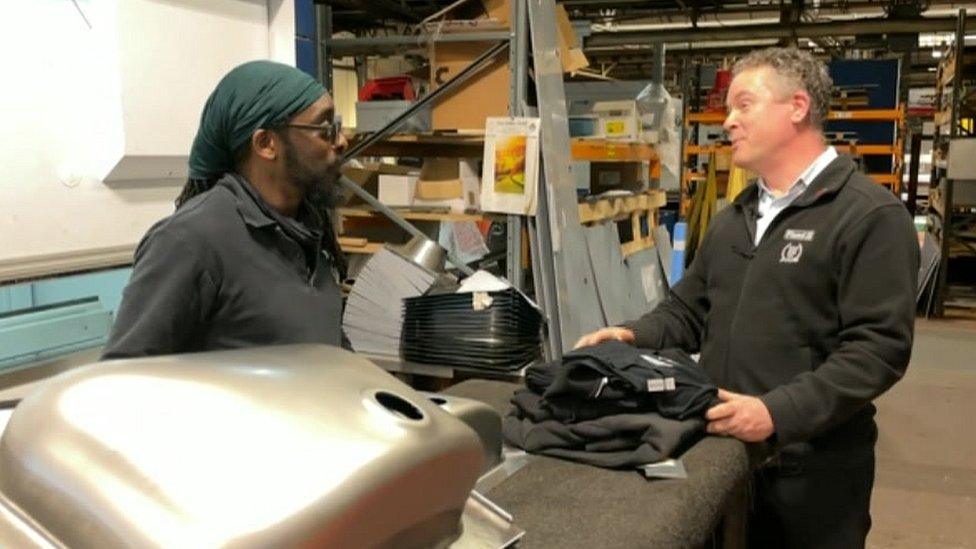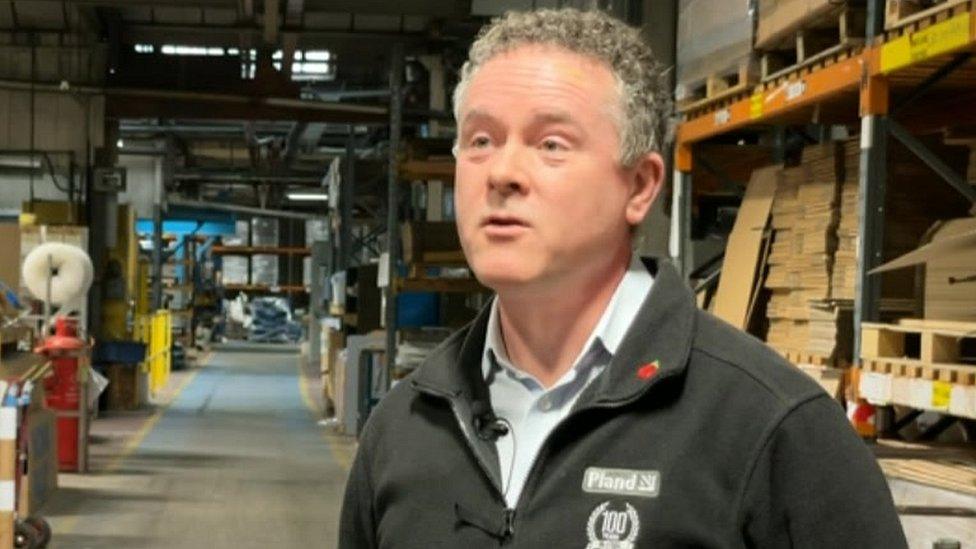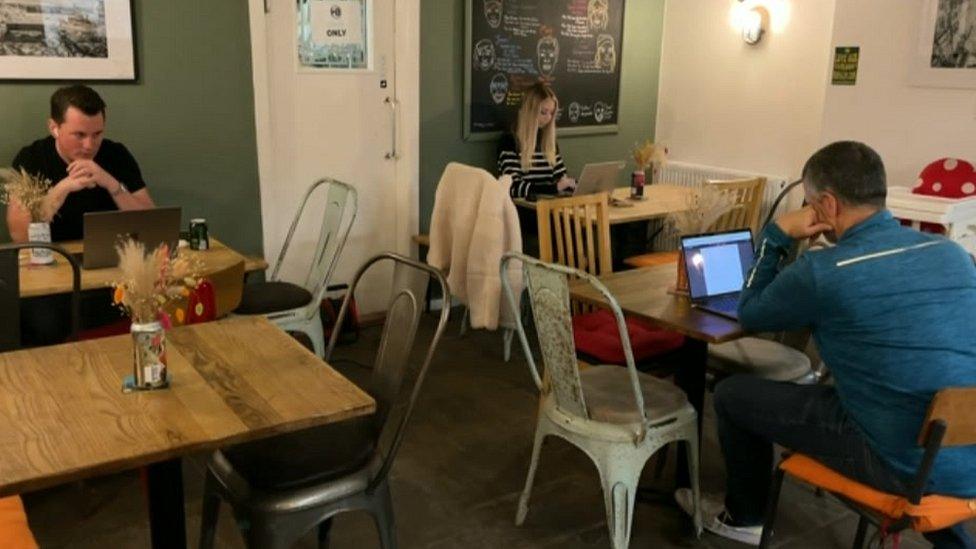Leeds stainless steel firm staff get thermals as heating is reduced
- Published

The company is distributing warmer work clothing to all its employees
Factory staff at a Leeds stainless steel products firm have been provided with warmer work clothing to help cut energy costs.
Pland Stainless said its annual energy bill of £110,000 could reach £400,000 if it did not take action to reduce it.
Staff at the firm are being given more "thermally efficient" clothing as it reduces the heating by a few degrees.
It comes as the latest UK inflation figures show prices have risen 11.1% in the year to October.
Increasing costs are being driven by food and energy prices, according to the Office of National Statistics (ONS).
The firm's financial controller, Russell Haigh, said the rise in energy costs was a clear problem.
He added: "Obviously we are trying to mitigate that and some of the measure are dropping the heating."
As the firm requires heavy and energy intensive equipment to press, weld and cut steel it has examined other avenues to trim outgoings.
Those measures include improving insulation, in areas it would previously have not been economically viable to do, and working to reduce draughts.

Russell Haigh said the company had also given staff financial help with the cost of living earlier in the year
Pland Stainless provides workwear for its 49 employees throughout the year, but the latest is much warmer to combat reduced site temperatures.
"We've done a mass distribution this week," Mr Haigh said.
He said they had acquired the thickest fleeces they could find and had opted for a heavyweight gilet, instead of the usual lightweight one.
"Everything we normally issue has been upgraded to be a bit more thermally efficient," he explained.
"For people on the shop floor particularly we've offered them base layers as well."
Staff also received a £400 cost of living payment in July.
The company said energy bills had an impact on cash flow as, unlike other supplies which might have to be paid for 30 or 60 days later, they had to be settled within 15 days of the end of the month.

Follow BBC Yorkshire on Facebook, external, Twitter, external and Instagram, external. Send your story ideas to yorkslincs.news@bbc.co.uk, external.
Related topics
- Published16 November 2022

- Published16 November 2022

- Published17 July 2024

